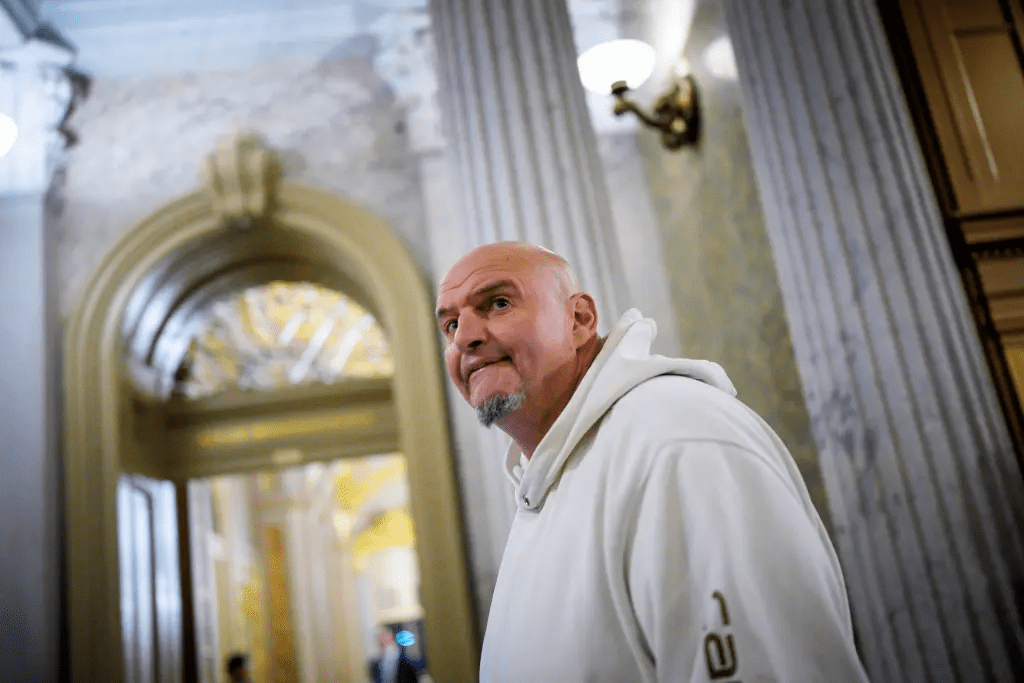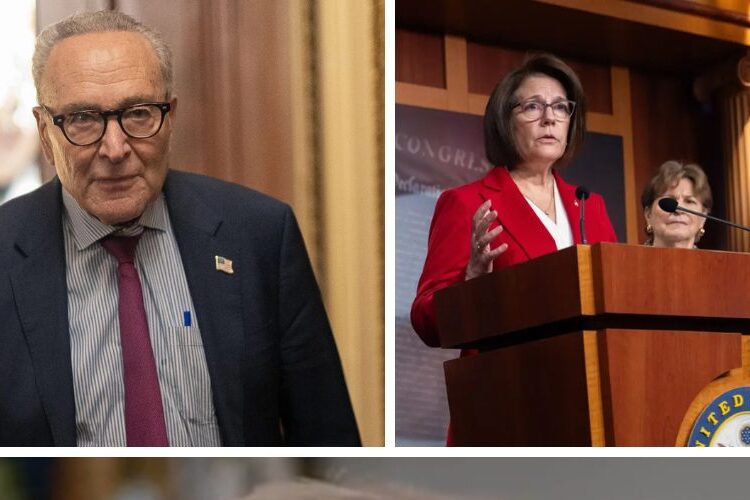President Trump Slams Chuck Schumer Over Government Shutdown Deal, Saying the Democrat Leader “Tried to Break Republicans — But the Republicans Broke Him”
President Donald Trump is taking a victory lap after the weeks-long government shutdown showdown in Washington, declaring that Senate Minority Leader Chuck Schumer “made a huge mistake” by underestimating Republican resolve. Speaking late Monday night, Trump said Schumer’s decision to oppose the GOP-led spending bill “backfired completely,” claiming the Democrats’ attempt to corner the Republicans ended with their own internal collapse.
The comments came as the government prepared to reopen after a grueling 41-day funding standoff that tested patience in both parties and brought key federal programs to a near standstill. “He thought he could break the Republicans,” Trump said firmly, “but the Republicans broke him.”
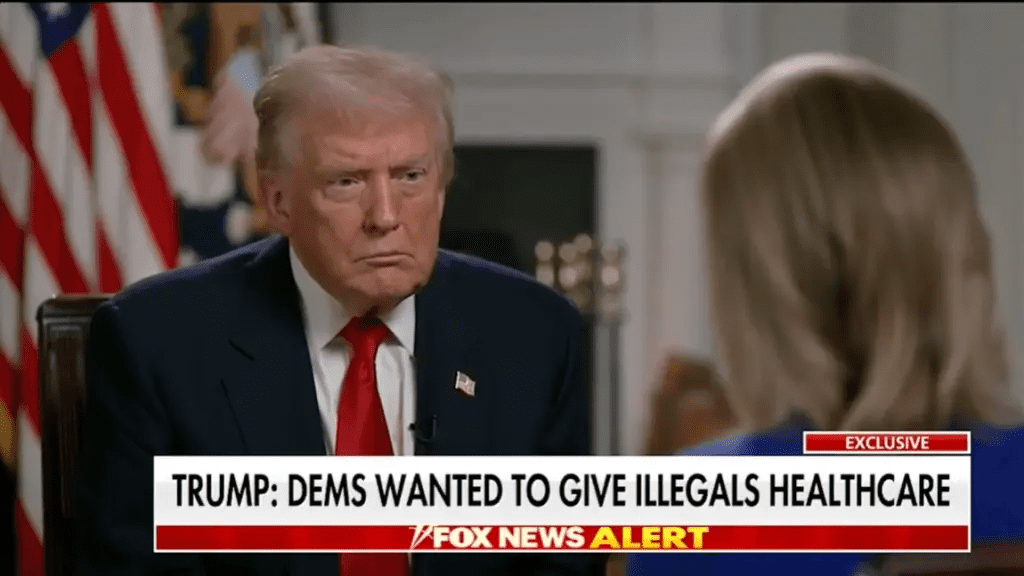
Behind the scenes, the standoff became one of the most politically charged showdowns in years. The dispute centered on funding extensions, health care subsidies, and SNAP benefits, with the White House pressing for deeper reforms while Democrats resisted sweeping policy changes. For weeks, both sides accused each other of brinkmanship, while hundreds of thousands of federal workers endured uncertainty about pay and benefits.
When the deal finally came together — funding the government through January 30, 2026 — it was Trump who emerged sounding like the fighter who refused to blink first. “We stood our ground,” he said, reiterating that his administration would continue to pursue “fiscal sanity and accountability” despite attempts by Democrats to derail long-term conservative policy goals.
Chuck Schumer, 74, joined 38 of his Democratic colleagues in opposing the final spending package, a move that even some members of his own party quietly questioned. The bill, which passed with support from House and Senate Republicans, included provisions for SNAP (food stamp) funding, veterans’ programs, and essential congressional operations through September 2026. But it was also crafted to signal a broader Republican victory — a political message that the party, despite internal divides, remains firmly aligned with Trump’s leadership on fiscal control and resistance to Democratic pressure.
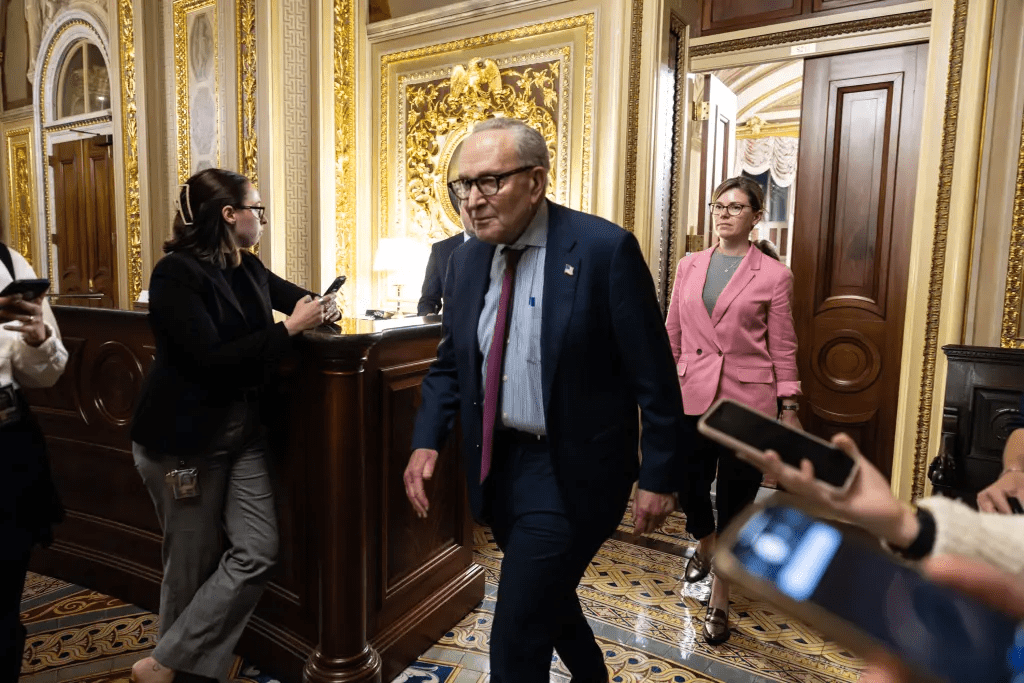
Political observers say Trump’s statement reflects not just a reaction to Schumer’s move but a larger strategy to solidify his control over the GOP narrative heading into an election year. “Trump is positioning himself as the leader who doesn’t back down under Washington’s pressure cooker,” one longtime Republican strategist explained. “He’s reminding voters that when the establishment panics, he stands firm.”
The recent standoff had also highlighted growing rifts inside the Democratic camp. While Schumer publicly defended his decision to oppose the spending bill, several moderate Democrats, especially those representing swing districts, were reportedly frustrated with leadership’s refusal to compromise sooner. One congressional aide told Fox News that Schumer “overplayed his hand,” banking on a Republican crack-up that never came. Instead, it was Schumer who ended up scrambling to contain dissent among Democrats worried about appearing responsible for prolonging the shutdown.
The latest impasse, the longest in recent years, echoed earlier funding battles during Trump’s first term — a time when the former president mastered the art of turning Washington gridlock into political momentum. As he reminded supporters this week, “Every time they think they can outlast us, they lose.”
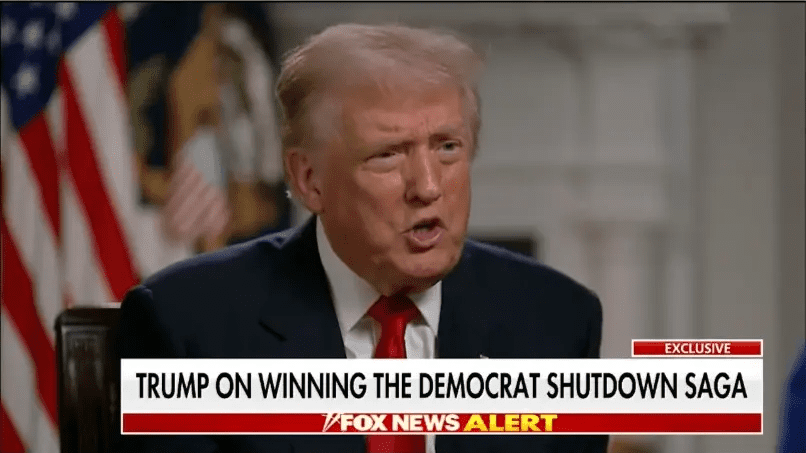
The White House struck a confident tone after Trump’s remarks. Advisors close to the former president described his message as one of both vindication and restraint. “He could’ve taken a victory lap weeks ago,” one aide said, “but he wanted to show that it’s about the American people — about getting government open, protecting veterans, and standing up to the political games that hurt working families.”
Republican allies, meanwhile, are framing the episode as another example of Trump’s unshakable influence. Even out of the Oval Office, they argue, he continues to shape negotiations and force his party to hold firm. “This wasn’t just a policy win,” said Senator J.D. Vance of Ohio. “This was a psychological win. It showed that Republican unity under Trump’s leadership remains unbreakable.”
Schumer, for his part, has maintained that Democrats were acting in good faith. In remarks to reporters earlier in the week, he said, “We refused to be bullied into supporting a bad deal.” Yet critics argue that his stance ultimately helped deliver Republicans a stronger narrative heading into next year’s elections. “When you make it about resisting Trump instead of helping Americans, you lose the argument,” said one political commentator on Fox Digital’s evening panel.
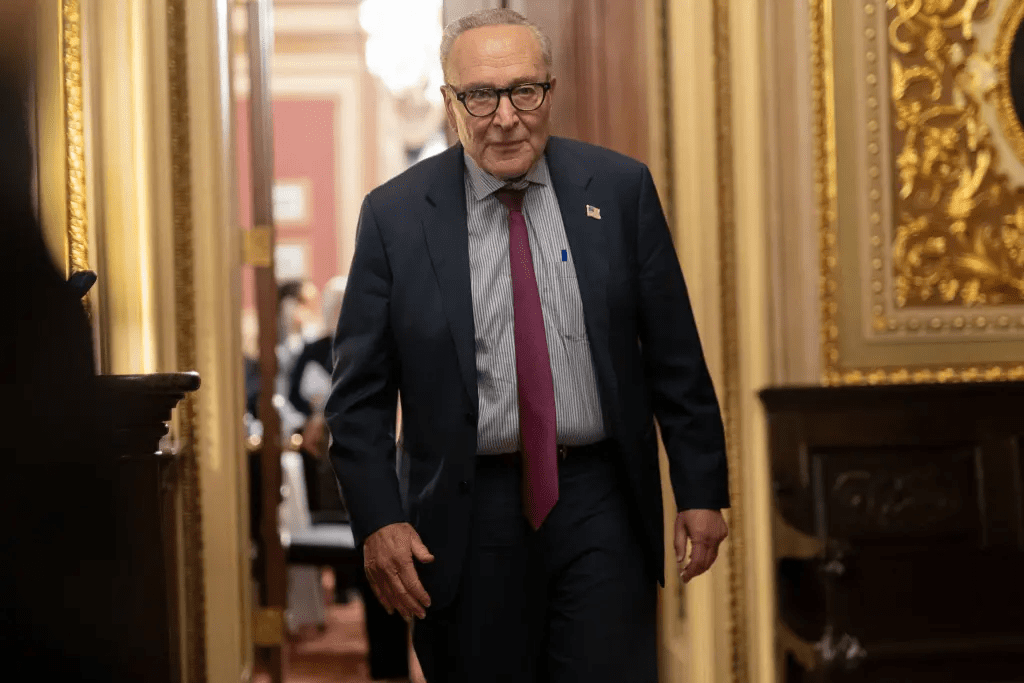
Inside Washington, the new spending plan is already being dissected for what it means long-term. Economists note that the deal’s structure extends key social programs while cutting certain discretionary spending lines, effectively freezing major budget increases until late 2026. The move signals a possible return to fiscal negotiation norms, though both sides acknowledge that future battles over tax reform and entitlement spending are inevitable.
For Trump supporters, though, the immediate takeaway is clear: the shutdown fight became yet another political brawl the former president turned into a narrative of strength. His pointed comment — “He thought he could break us, and we broke him” — has already gone viral on social media, shared by conservative influencers as a symbol of resilience. “It’s not just a soundbite,” one supporter posted on X. “It’s what leadership sounds like when everyone else caves.”
In Democratic circles, reactions have been muted but tense. Sources close to Schumer told the New York Post that the minority leader remains convinced his decision was the right one, arguing that it forced attention on issues like child nutrition funding and environmental protection that Republicans “barely wanted to discuss.” Still, within hours of Trump’s statement, several Democratic operatives privately admitted that the optics didn’t play in their favor. “The timing couldn’t have been worse,” one strategist said. “Schumer looked like he was fighting for principle, but Trump looked like he was fighting for America’s paycheck.”
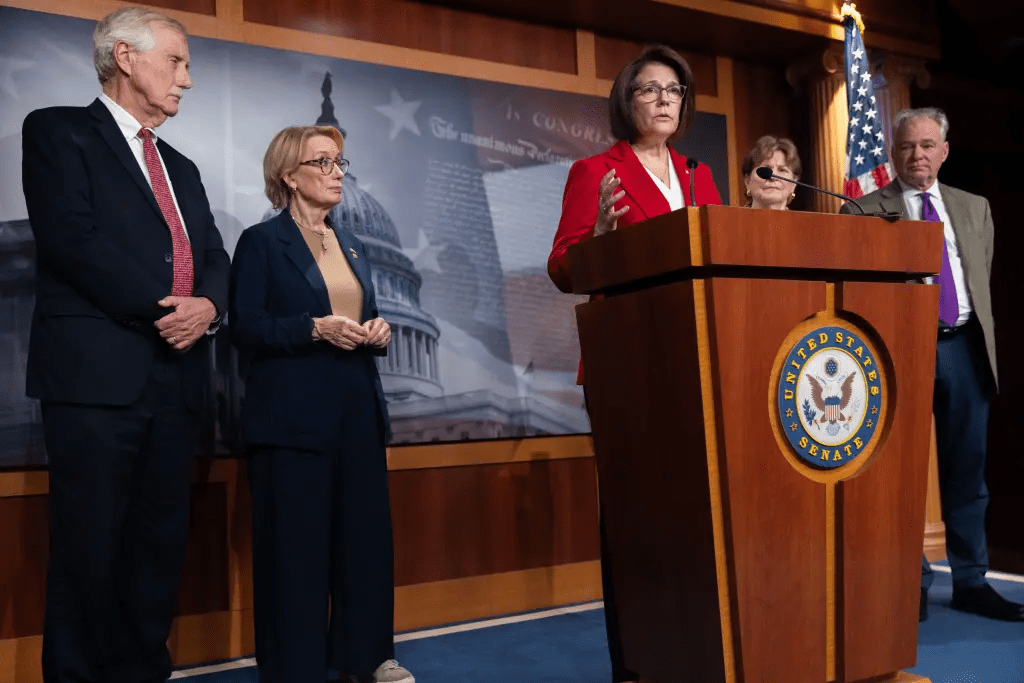
Analysts believe the episode underscores how Trump’s instincts for political messaging remain unmatched in modern politics. While Democrats continue to frame their opposition around policy, Trump consistently reframes debates into moral battles — winners versus losers, strength versus weakness. The pattern that defined his presidency now defines his post-presidency political warfare: seize the narrative, define the enemy, and make the confrontation personal.
Still, even among his critics, there is acknowledgment that Trump’s remarks hit a nerve. “He’s a master of perception,” said one nonpartisan analyst. “Whether or not you agree with him, he knows how to make his opponents look like the ones who flinched first.”
The coming days will reveal whether the political fallout reshapes Capitol Hill dynamics or merely cements the partisan divisions already defining this era. What’s certain is that both Trump and Schumer are locked in a long-term duel — not just over budgets, but over who controls the story of power in America.
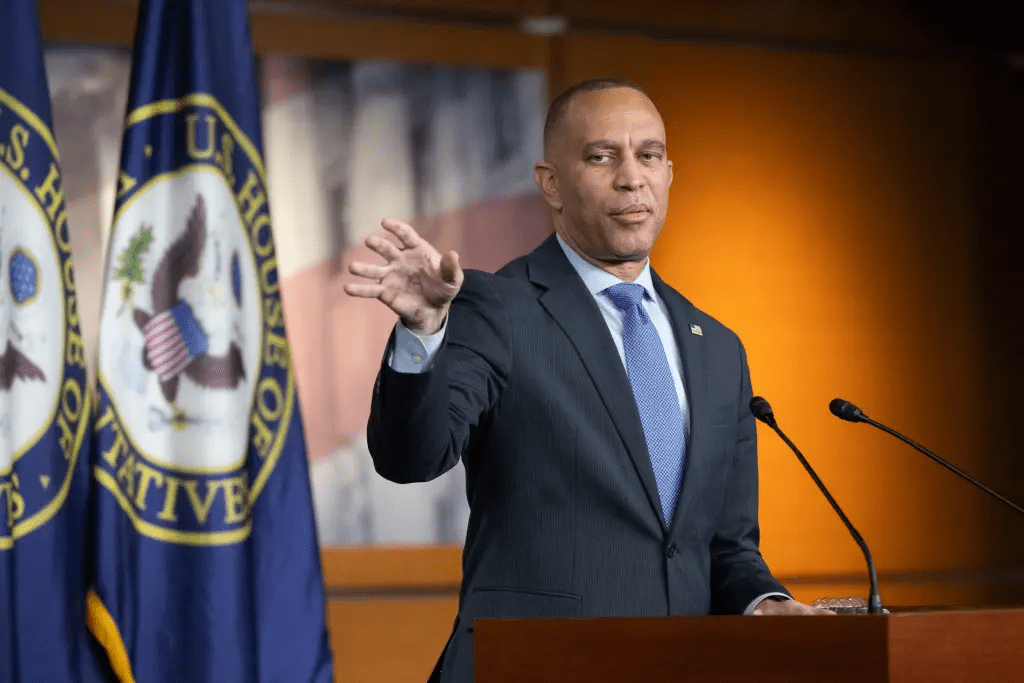
For now, as Washington takes a breath after the shutdown, Trump has once again shown that even from outside the White House, his voice dominates the political stage. His allies are framing the end of the standoff as proof of “strategic patience,” a phrase echoed repeatedly on conservative talk shows this morning. “This was chess, not checkers,” one Republican congressman said. “Schumer made his move. Trump made the winning one.”
As America edges toward another election season filled with budget fights, policy standoffs, and campaign rhetoric, the lesson from this battle feels familiar: underestimate Donald Trump, and you risk learning — again — that in Washington’s games of power, he still knows how to win.
